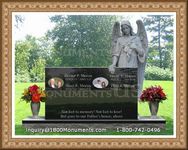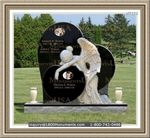|
What You Should Expect When Appearing At A Jewish Funeral
A traditional Jewish funeral has certain elements to it. The main aim of these rituals is to honor the dead person, while being sensitive to his surviving family members. Generally, the specific customs carried out depends on the community the deceased person hailed from. But there are general customs that are observed at most burials.
The burial should take place within twenty four hours after death. However, there are some instances that may prevent this from happening. If close family members of the deceased are based in far away location, the burial will have to be delayed until the relatives have arrived. However, the funeral should generally be carried out as soon as possible.
Open caskets are not allowed at memorial services. The casket chosen should be simple and totally biodegradable. This means that it should be made purely out of wood. Even nails are not allowed, as they are metallic and can't decompose.
Preservation of the body through embalming is not allowed, unless demanded by local laws for health reasons. This is to allow the body to decompose naturally. If the family wishes, they can call a pious society of men and women who have devoted themselves to the task of cleaning and dressing dead bodies as required by tradition.
Short services that last only a couple of minutes are encouraged. Flowers are not present in most memorial services as they are considered unnecessary. Mourners cannot talk and interact with other attendees until after the burial service has been completed.
At the conclusion of a Jewish funeral, mourners pass through the middle of the parallel line formed by the attendees. The attendees recite consoling words to the mourners. To symbolically cleanse themselves, mourners can wash their hands when leaving the graveside.
|
|



























